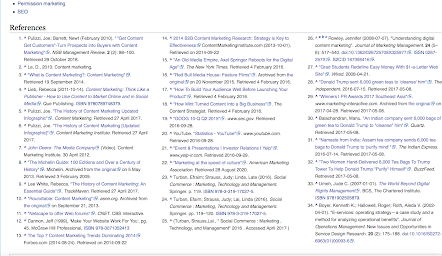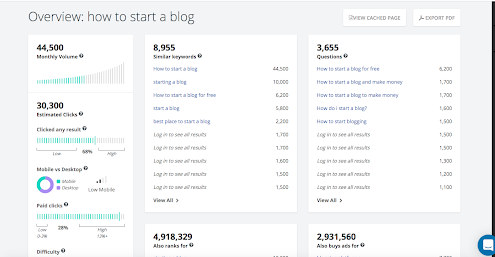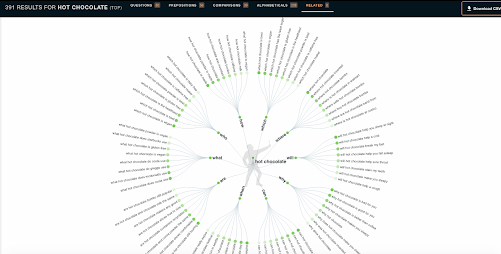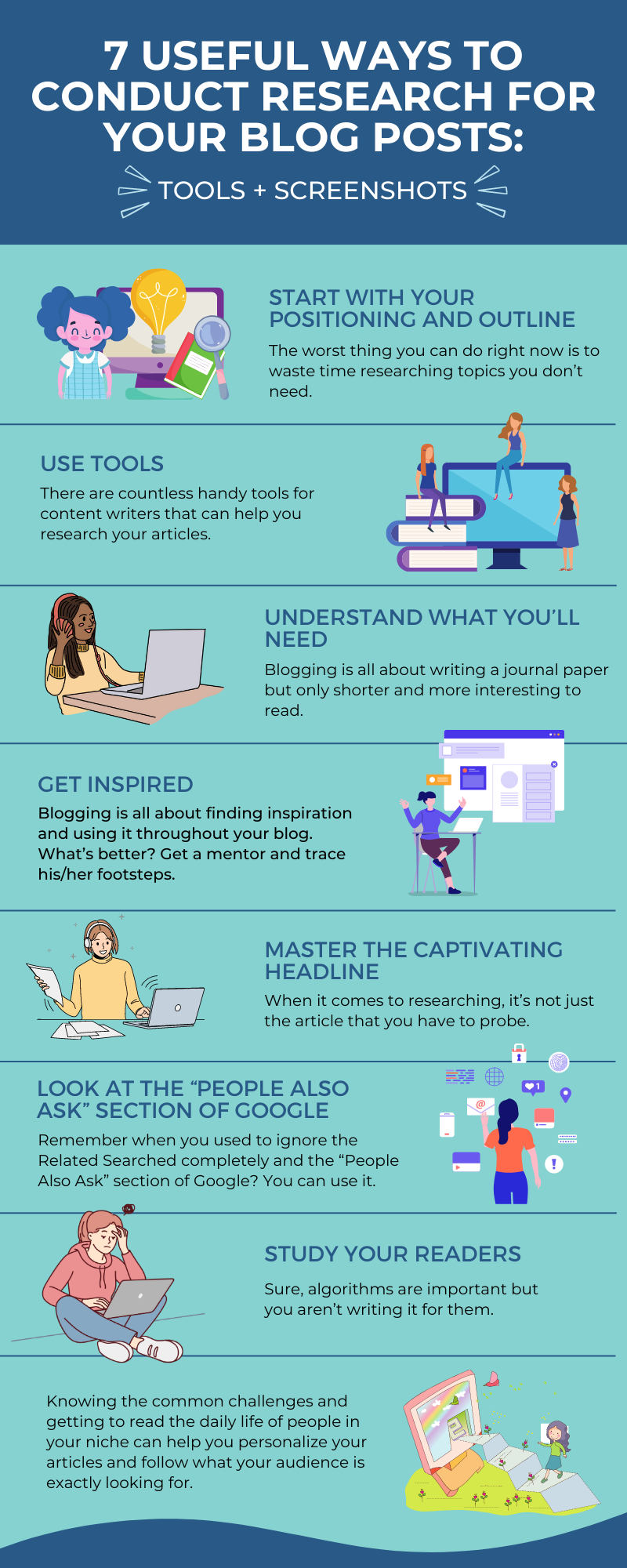“If you can’t explain it simply, you don’t understand it well enough.” Albert Einstein.
And how can you make that possible?
Research.
Every writer wants to generate authority, trust, and influence over their readers. These are all traits of successfully researched content that backs up every claim it states. I get it; who is going to research all those Wikipedia articles anyway?
But if you are a content writing nerd, there is nothing more exciting than getting your hands on juicy, wholesome in-depth topic research that will give you no reason to deny every word you write.
I can understand if the writer has done proper research just by looking at the first few paragraphs. You could sense if the person is knowledgeable when you read their unique perspectives on it.
However, getting there can become much easier if you know the correct way to streamline your research efforts and take experts’ help.
So buckle up, fellas, because I’m going to address everything you need to conduct research for your blog posts!
1. Start with Your Positioning and Outline
The worst thing you can do right now is to waste time researching topics you don’t need. Therefore it is absolutely crucial to strategize what you want in your article and work your way around finding that specific information.
Think about it; the internet is packed with claims like “Nutella is the #1 way to amp up your ordinary brownie,” but to gain a competitive edge, you need to state your Why-s (though, I have no objection with that claim).
Did you run tests? If yes, show data. Is it mentioned in a scientific study? Give extracts from the research. You can also go the extra mile and create pie charts, testimonials, and graphs to back up your every claim.
The best part? You can even cite graphs and data from high authority sites if you are short on time.
I recommend you do your SEO research on the keyword, related subheading, and popular content and create an outline. This way, you will know what to look for and use your time wisely.
2. Use Tools
There are countless handy tools for content writers that can help you research your articles. It is no surprise that writers do most of the piece before typing in the first word on Doc. However, this process can become a breeze if you leverage the right tools to do it.
Although the links under Wikipedia Page (see below) make up one of the best sources to research your topic, for a vast majority of articles, here’s a short and the only list of tools you will need to make researching a no-brainer.

BuzzSumo

BuzzSumo is the all-hail leader in the researching game. As they say, a good piece of content sells itself (Who said, I hear you ask? Me, of course), but highly demanded content skyrockets.
In simple words, what kind of content does my target audience share the most? Buzzsumo is built to answer that.
Simply type in your topic, and you will get bombarded with a long list of trending topics and top-shared content on social media. This will give you a general idea of:
- Successful article structure
- Subheadings to include
- Keywords to include
- Headlines
- Writers to collaborate/hire
This way, you get to save tons of time researching content that you are unsure will even work. I’ve personally managed to shrink down 4-hour research into 30 minutes BuzzSumo browsing. And I wouldn’t lie to you; these 30 minutes turned to work better than those 4 hours could ever have.
Wolfram Alpha

You know what you are saying is correct but ever wondered how you will back that up? This is where Wolfram Alpha comes into the picture. It is an educational search engine made to provide facts, Wikipedia results, or any studies done on a particular topic or person. This way, you can easily trace back to the original sources of the potential and get your handbags n any tangible proof and data on your article.
So the next time you need to write a deeply researched article that will understand above the rest, simply hit on Wolfram Alpha and start making your search queries. Don’t forget to record all the data in Google docs or Spreadsheet to refer back when writing your article.
SpyFu

Want to know what keywords and articles your competitors are ranking on the most? Try SpyFu. It is one of my favorite tools to carry out competitive analysis and fuel me up with inspiration when it hit a plateau. The best part? It’s FREE!
3. Understand what You’ll Need
Blogging is all about writing a journal paper but only shorter and more interesting to read. Although I’ve touched upon this point before it needs more emphasis. One thing that is sure about blogging is that you need to please your readers first, algorithms second.
Therefore, count on any place where you are likely to get unbiased opinions, tips, and stories of real people. Sure, pre-written content on the web is useful, but you really get to cover all the blink spots by covering advice from actual people who have gone through everything you are writing about.
Here, I suggest hitting up forum websites like Quora and Reddit, which are packed with debates and opinions to create one hell of a meaty piece of content on your blog. If possible, try to scroll through their feeds and consume as much information about the topic as possible.
This includes watching YouTube videos, reading comments, FAQs, social media polls, blogs, and forums one day before covering the topic.
This will help you get an overall idea of the subject and let it sink in before you start teaching others about it.
4. Get inspired
Blogging is all about finding inspiration and using it throughout your blog. What’s better? Get a mentor and trace his/her footsteps. SEO and topic research will only help you understand what to put inside your outline, not the outline itself.
Therefore, if you are unaware of the article structure and language that keeps your readers hooked to your blog, start reading other blogs.
Structure
Different articles require different structures. Therefore categorize your content into different segments and create a structure for all of them. Ideally, this is how your blog post should look like:

Credit: onblastblog.com
However, a good search on the web will indicate there are different ways to convey your stories. For example, a question post will have a different structure than a VS post where you compare two or more alternatives. You can also consider whether you are an opinion or commentary article.
Based on your answers, search what and how your top 5 competitors are writing. Figure out how they emphasize the problem and present their solutions. If you struggle to comprehend the articles, I suggest physically writing down the article. Yes, I’m not asking you to copy/paste it! So grab a pen and paper and start replicating your favorite blog posts.
Sure, you don’t have to do this for one article but make sure to practice it to help you improve not just your article analysis but polish your writing skills as well.
Language:
Now that you are set with the structure, it’s time you start figuring out the language that actually works in the online blogging world. Practicing to copy your favorite blog can again help you adapt to a highly demanded writing style. Here are some of the global tricks to improve your language.
- Write in the first person.
- Never “dumb down” your research. Just find a simpler way to put it
- If you can use five words to describe it, why both with 10?
- Avoid using science or Footnote references to add all your resources (COVID-19 Crisis. 2021 [1] [2])
- Back up your content with checklists, illustrations, graphics, tables, videos, and quotes to keep your readers engaged.
- Use short sentences to break down complex concepts (one-word lines are awesome too!)
- Be controversial. This means linking the end of a sentence to the opening of the next sentence. You can never go wrong with this one.
5. Master the Captivating Headline
When it comes to researching, it’s not just the article that you have to probe. Instead, researching headlines is the key to writing headlines that will make it irresistible for your audience to click on the article.
Therefore, use some extra time to write the headline of your article. To do this, it’s best to write emails to different segments with different headlines. Later, you can go with the one with the highest opening rate.
6. Look at the “People Also Ask” Section of Google
Remember when you used to ignore the Related Searched completely and the “People Also Ask” section of Google? Now, you can use it as your weapon. These two are your free, ready-to-use topic sentences with high search queries. Then, you can simply add them to your article outline and start opening up the tabs to begin researching.


7. Study Your Readers
Sure, algorithms are important but you aren’t writing it for them. So instead of strategizing your content marketing after you have published your article, why not start from the readers in the first place.
For example, if you run a blog for expert HTML website builders, mentioning the definitions will only irk your readers. So instead of spending time researching different definitions, look for expert tips, mistakes, portfolios, tools, and methods that most experts need to be aware of.
The best way to research the topics in your niche is to:
- Join Facebook groups and stay loyal to your group mates. Don’t try to promote yourself there; it will only backfire (trust me; been there, done that)
- Read and follow Nice accounts on Quora and Reddit
- Access blog comments on industry-leading websites
- Follow LinkedIn experts in your Niche
- Use tools like AnswerThePublic (see below)

Knowing the common challenges and getting to read the daily life of people in your niche can help you personalize your articles and follow what your audience is exactly looking for. Later, you can even leverage these communications to help you generate your research material and gain the ever-needed competitive edge.

















